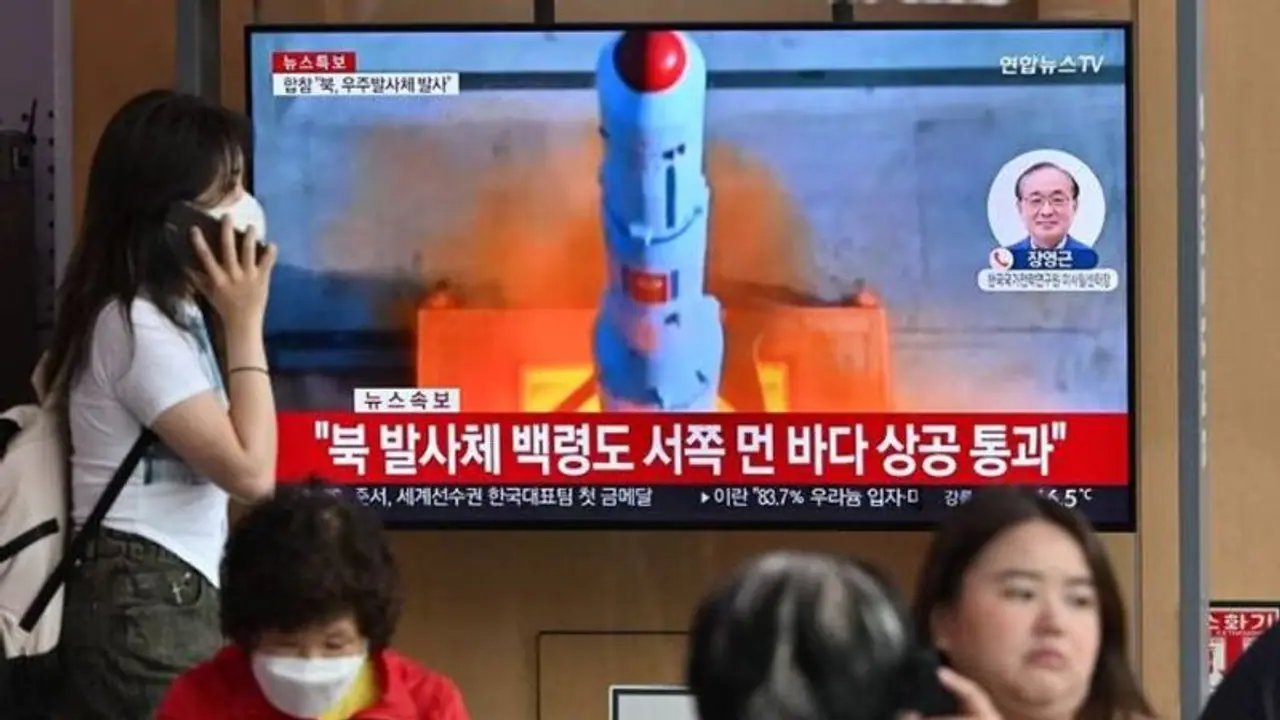According to report, the launched new satellite transport rocket 'Cheollima-1' crashed into the West Sea of Korea as it lost momentum due to abnormal start-up of the two-stage engine after one step separation while flying normally.
North Korea launched a military spy satellite Wednesday, but it crashed into the sea soon after as an "accident occurred" during its flight, state media said. Leader Kim Jong Un has made developing a military spy satellite a key priority for his government and personally oversaw some launch preparations. Pyongyang does not currently have a working satellite in orbit.

According to the official Korean Central News Agency, the North Korean space authorities "launched a military reconnaissance satellite, "Malligyong-1," mounted on a new-type carrier rocket, "Chollima-1," at the Sohae Satellite Launching Ground in Cholsan County of North Phyongan Province at 6:27 on May 31."
However, the rocket lost thrust "after losing thrust due to the abnormal starting of the second-stage engine after the separation of the first stage during the normal flight," according to the report.
The government would "thoroughly investigate the serious flaws revealed in the satellite launch, take urgent scientific and technological steps to remedy them, and conduct the second launch as soon as practicable."
The Joint Chiefs of Staff reported that South Korea's military had observed the satellite's launch, which it claimed vanished from radar early and plummeted into the water as a result of aberrant flight.
The anticipated launch was sharply denounced by Tokyo and Seoul because, in their opinion, it would violate UN sanctions that forbid Pyongyang from conducting any tests using ballistic missile technology. As an air raid siren sounded in central Seoul shortly after the launch, Seoul municipal officials sent an emergency text message warning to citizens with the phrase: "Citizens, please prepare to evacuate and allow children and the elderly to evacuate first."
